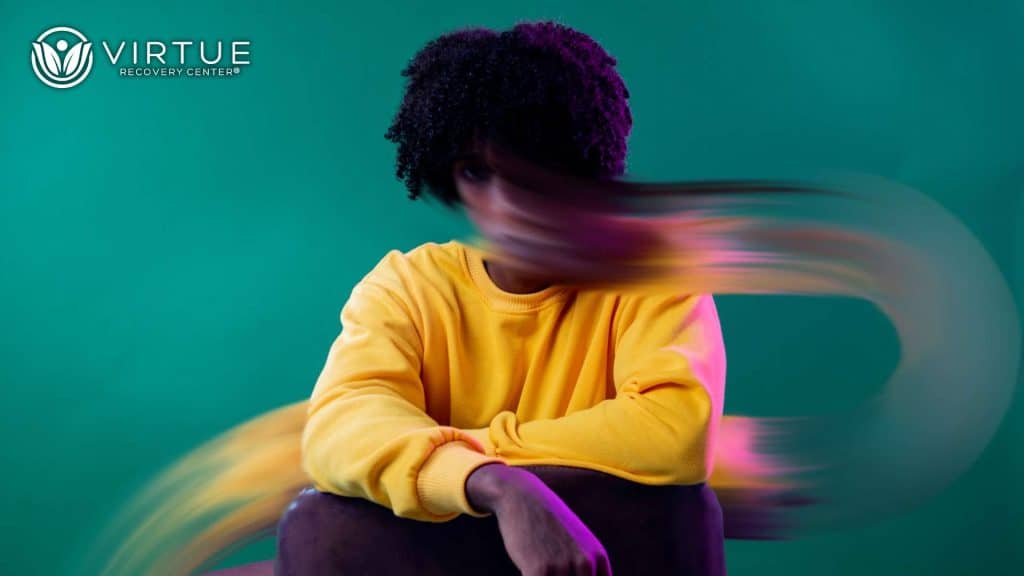Key Takeaways
-
Salvia divinorum is a strong hallucinogen that can be dangerous, even in small doses.
-
Many people think it’s safe because it’s natural—but salvia can be addictive.
-
Long-term use may cause memory problems, mental health issues, and risky behavior.
-
Virtue Recovery Houston offers treatment programs for people struggling with salvia abuse.
Introduction
Salvia might seem harmless to some. It’s a plant. It’s natural. In a few places, it’s still legal.
But don’t be fooled.
Salvia divinorum is one of the strongest hallucinogenic drugs out there. It can cause scary and dangerous side effects—even the first time you try it. Just because it grows in nature doesn’t mean it’s safe.
If you or someone you care about is using salvia, it’s important to understand the risks. In this article, we’ll talk about what salvia is, why it’s addictive, and how to get help.
What Is Salvia and How Is It Used?
Salvia divinorum is a psychoactive plant from Central America. For hundreds of years, it was used in ceremonies by local healers. But today, it’s often misused as a way to “get high.”
People usually smoke the dried leaves or chew the fresh ones. Some also make it into a tea or use an extract. Salvia works fast—within seconds—and the effects can last from 5 to 30 minutes.
Its active ingredient, salvinorin A, is very powerful. It affects a part of the brain called the kappa opioid receptor, which controls mood, pain, and perception.
That’s why salvia trips are intense, unpredictable, and often scary.
Short-Term Effects and Risks of Salvia Use
Right after taking salvia, a person may seem confused or act strangely. They might laugh uncontrollably, talk nonsense, or look like they’re in a dream.
Short-term effects include:
-
Hallucinations (seeing or hearing things that aren’t real)
-
Out-of-body experiences
-
Loss of coordination or balance
-
Panic, fear, or anxiety
-
Trouble speaking or thinking clearly
-
Unusual thoughts or behavior
These effects can be dangerous. Someone on salvia might walk into traffic, fall, or hurt themselves without even realizing it.
Even if a trip is short, the impact can be lasting.
Long-Term Effects of Salvia Abuse
Using salvia more than once increases the risks. Over time, the brain and body can suffer.
Long-term effects may include:
-
Memory problems
-
Mood swings or depression
-
Feeling disconnected from reality
-
Poor decision-making
-
Risky behavior
-
Loss of motivation
-
Mental health struggles, like psychosis-like symptoms
People who use salvia often may also build tolerance—meaning they need more of the drug to feel the same high. That’s how salvia dependence can start.
Is Salvia Addictive? Understanding the Risk
Salvia isn’t always thought of as addictive—but it can be. People may not crave it like some other drugs, but they may start to use it regularly to escape reality or deal with stress.
That’s when addiction can take hold.
Signs of salvia addiction include:
-
Using salvia even when you know it’s causing problems
-
Feeling like you can’t stop
-
Skipping school, work, or family time to use the drug
-
Needing more to get the same effect
-
Feeling sad, anxious, or restless when not using
Salvia abuse is also dangerous because it can interact with other drugs or mental health issues, making everything worse.
Why Salvia Is Not a Safe “Legal High”
Just because something is legal—or easy to buy online—doesn’t mean it’s safe.
Salvia is still legal in some states (not in Texas), but the Drug Enforcement Administration (DEA) lists it as a “drug of concern.” That means it can be abused and may be harmful to health.
In fact, salvia is one of the most potent hallucinogens in the world. The high from salvia is often intense and unpredictable, even with small amounts.
Some people experience flashbacks, intense fear, or feel like they’re dying during a trip. That’s not fun—it’s dangerous.
Recognizing Signs of Salvia Abuse
If someone you love is using salvia, you may notice changes in how they look or act.
Common signs include:
-
Dilated pupils or red eyes
-
Sudden mood swings
-
Strange or risky behavior
-
Talking about out-of-body experiences
-
Laughing or crying for no clear reason
-
Withdrawing from family and friends
-
Using incense or pipes for smoking
You might also find salvia leaves or extracts in their room or backpack. If you notice these signs, it’s time to talk—and time to get help.
Treatment Options for Salvia Abuse and Addiction
The good news? Treatment works.
At Virtue Recovery Houston, we offer personalized addiction treatment for people struggling with salvia abuse and other substances.
Our programs include:
-
Medical detox (if needed) to safely clear the drug from the body
-
Inpatient rehab for those who need 24/7 support
-
Therapy and counseling, including cognitive behavioral therapy (CBT)
-
Dual diagnosis care for people with both addiction and mental health issues
-
Group support, education, and relapse prevention
Everyone’s journey is different. That’s why we build a plan that fits your needs—and walk with you every step of the way.
Conclusion: Real Help Is Available for Salvia Addiction
Salvia is not just a harmless herb. It’s a powerful drug that can damage your mind, your body, and your future.
If you or someone you love is using salvia, don’t wait for things to get worse. There is hope. There is help.
Call Virtue Recovery Houston today at 713-234-6254 to talk to someone who understands. We’re here to support you on your journey to healing and recovery.
Can Cannabis Toxicity in Pets Be Related to Salvia Abuse in Humans?
Cannabis safety for pets is becoming a critical discussion as more pet owners acknowledge the risks. With the rise in salvia abuse among humans, it’s essential to understand the potential toxic effects of cannabis on pets. Ensuring that pets are kept away from such substances can prevent dangerous health issues.








